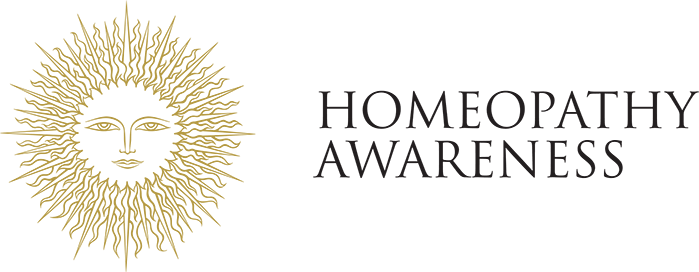Homeopathy on the NHS
Is homeopathic treatment currently available on the NHS?
Yes, it is. Homeopathy has been part of the NHS since its inception in 1948 when the then government declared that homeopathy would continue to be available on the NHS as long as there were, “patients wishing to receive it and doctors willing to provide it” and it has been available to patients ever since. Four homeopathic hospitals in London, Bristol, Liverpool and Glasgow were originally gifted to the NHS and treat around 40,000 patients every year.10 These are people who were not helped by conventional medicine, yet have been helped by the NHS provision of homeopathic treatment. As the NHS Constitution states, “Everyone counts” and “Nobody is excluded”. The Liverpool hospital was closed by the NHS in 2018 and the Bristol hospital is now a social enterprise.
The World Health Organisation’s Traditional Medicine Strategy 2014-2023 states that Universal Health Coverage (UHC) is only possible by integrating Complementary and Alternative Medicine (CAM) services including Homeopathy into the healthcare delivery.
homeopathy has been part of the NHS since its inception in 1948
How much does it cost the NHS to provide homeopathy?
In 2013, from the total NHS drug budget of £13 billion a year, the NHS spent £152,000 (0.0013%) on homeopathic prescriptions.11 From the total NHS budget of £137 billion a year, £4 million (0.004%) is spent on homeopathy if everything is included, from running the hospitals and paying the staff.12
When considering value for money, it should be remembered that if these patients were not treated with homeopathic medicines, they would have to be treated by other NHS departments and be prescribed more expensive conventional medications. In 2005, a study commissioned by a German health insurance company assessed the value of homeopathy in treating chronic conditions commonly seen in general practice. Patients were treated by GPs and received either homeopathic or conventional medicines. Patients in the homeopathy group reported greater improvement than the conventional medicine group, with no significant difference in cost.13
£152,000 (0.0013%) on homeopathic
prescriptions
Does the NHS constitution allow patients a right of choice?
Yes. It is firmly written into the NHS Constitution that, “patients will be at the heart of everything the NHS does” and therefore be able to make informed and personal choices about their health care. These choices should be based upon sound information, not misinformation.
Doctors (of which there are around 400 with homeopathic training within the NHS) should be able to prescribe homeopathic medicines or refer to homeopathic hospitals for those patients they cannot otherwise help.
Advocates of Complementary and Alternative Medicine (CAM) like to choose the natural and gentle health solution where their circumstances allow it. However, homeopathy is often used along side conventional treatment and homeopaths make patient referrals to doctors.
“patients will be at the heart of everything the NHS does”
What are the implications if homeopathic medicines are cut from the NHS?
The 40,000 patients10 a year who benefit from homeopathic treatment would either have nowhere to go or would have to be treated by other NHS departments and be prescribed more expensive conventional medications i.e. it would exclude patients and cost more.
A “black-listing” of homeopathic medicines would run contrary to the NHS constitutional principles of “Everyone counts” and “Nobody is excluded”. It would also be unsupportive of the Royal College of General Practitioners campaign, “Put the patient first”.
It would also be inconsistent with the premise of only funding treatments with known effectiveness, especially given that 50% of treatments currently provided by the NHS are of “unknown effectiveness”.16
In 2014 the number of adverse drug reactions reported to the MHRA was 31,550 of which 5% were fatal. The number of adverse homeopathic medicine reactions for the same period was zero.28
it would exclude patients and cost more
What might be a way forward for the NHS?
The NHS was created in 1948, in a period of austerity. We are currently enduring another period of austerity and the NHS is struggling to provide the high level of care for which it is renowned. Running costs are increasing every year; prescription numbers have increased by 70% over a ten year period29 and for anti-depressants by 500% over the past twenty years.30 Something needs to change.
In 2005, the Smallwood report found that patients treated with complementary and alternative medicines showed a 30% reduction in the number of GP consultations and a saving of 50% on the prescription drugs bill.31 Comparable high quality studies have been carried out in France and Germany with similar results.32, 33
The Swiss Health Authorities, for example, commissioned a report which confirmed homeopathy, “as a valuable addition to the conventional medical landscape – a status it has been holding for a long time in practical health care.”34 The Swiss interior ministry plans to give five complementary therapies including homeopathy the same status as conventional medicine. As a result, these treatments will be covered by basic compulsory insurance.35
Given that the NHS is “in crisis”, it would make common sense to embrace a more integrated approach to patient care; at least continuing provision of homeopathy for the doctors and patients who currently value it, or even increasing it.
Find out about Homeopathy Awareness Week
a more integrated approach to patient care

